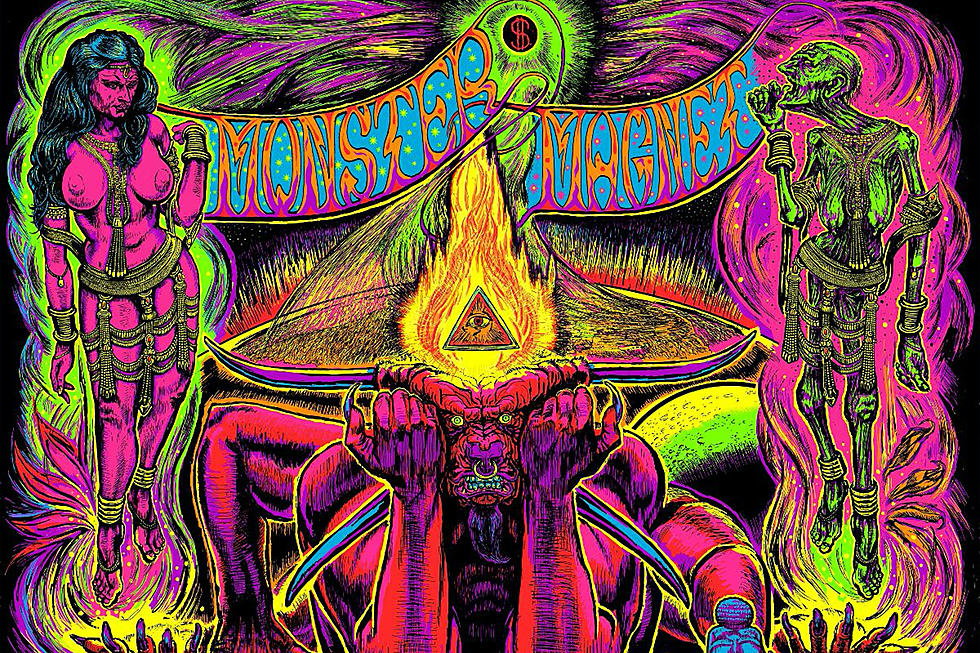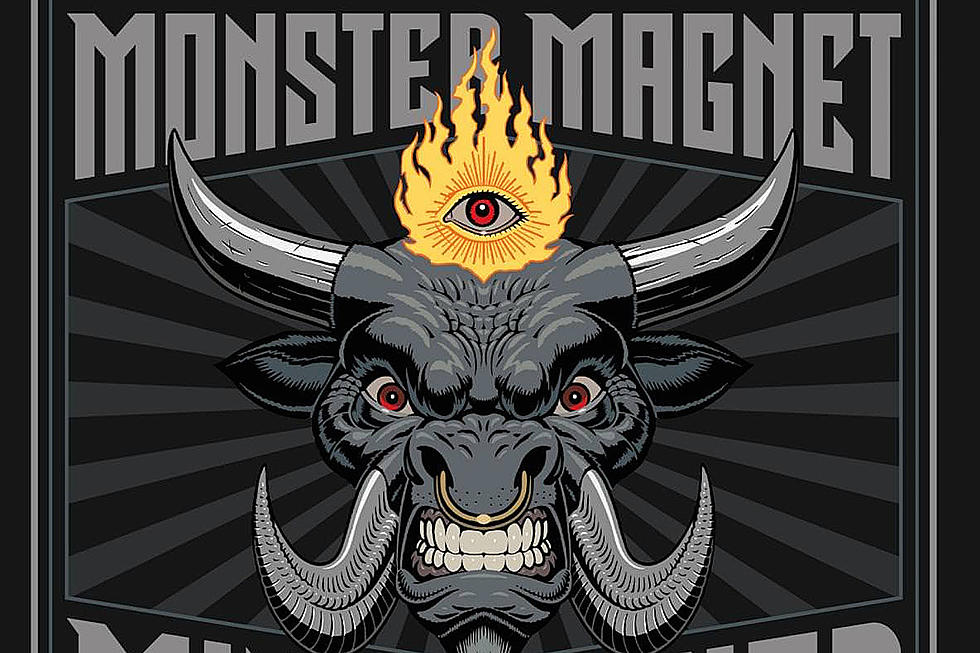
When Monster Magnet Took Us on a ‘Powertrip’
Monster Magnet tried kicking in the door to mainstream acceptance on June 16, 1998 with their fourth album, Powertrip. Their signature heavy and spacy sound intact, the band momentarily became MTV stars with the single "Space Lord."
When Monster Magnet started at the tail end of the '80s, they were pretty much alone in their chosen sound and style. Drawing from the heavy music of 20 years prior, they began to carve their own path. Following a couple self-released demo tapes, the band signed to the European label Glitterhouse Records who issued their self-titled EP. Shortly after, they found a U.S. home with Caroline Records who issued the now-classic Spine of God album in 1991.
Spine of God was a blueprint for the Monster Magnet sound: equal parts hard rock and psychedelia with punk-inspired aggression. They counted as their influences the likes of Hawkwind, Funkadelic, Black Sabbath and Grand Funk Railroad (they even covered "Sin's a Good Man's Brother”).
Signing to A&M in 1993, the band issued their second album, Superjudge. It was a slightly more focused and tighter-sounding record than their debut, and would expose more people to the band. Being signed to a majo didn't curtail their sense of humor or identity, either, as slogans like "School Free Drug Zone" appeared on t-shirts.
Watch Monster Magnet Perform 'Space Lord'
Band leader Dave Wyndorf was already nearly 40 years old when the band was on the rise. Having grown up with those heavy influences first hand, he was never afraid to wear his them proudly.
"Throughout the '90s I have seen people try to avoid every stereotype," observed Magnet leader Dave Wyndorf in a 1998 interview. "The information age has done a great job of confusing plenty of people, especially in the States. There's 150 TV channels, there's lots of competition. There's video games. People are hypnotized by the sheer amount of entertainment and information that's out there."
"When I was a kid, you know, I went out and saw Kiss and the Ramones," Wyndorf recalled. "These guys rocked, they rocked. They did it! And now, I sit there and watch bands crying into their 7-Up, and it's just too much. I think AIDS had a lot to do with it. I think AIDS kind of put everybody off the sex, drugs and rock and roll thing. It scared people, I mean, sex equals death, that'll scare ya."
Powertrip melded together the band's trademark sound – retaining the heavy groove – with a new gloss. Songs like "Crop Circle" and "Bummer" were heavy and cosmic while "19 Witches" was more in the garage-rock mode. The album also included a re-recorded version of "Tractor," which first appeared on that debut EP.
Watch Monster Magnet Perform 'Powertrip'
At the time, Wyndorf found the band at a crossroads of sorts, trying to go for big-time rock and roll while angst rock was still everywhere. "That college/independent mentality, like 'We're gonna bring something more to this. We're gonna make it more important' tended to squeeze out what seemed to be stupid or more basic instincts, leaving it to the rap guys," he said. "The rap guys come from nothing and they want to be a super hero. They do the whole thing: 'I want women. I want cars.' There is absolutely no shame in operating from the groin. Rock and roll was something that was created for dancing and for sex."
With that in mind, Monster Magnet took elements from the big hip-hop videos of the moment and wove them into the video for the album's title track. It worked as part-homage, part-parody, but they definitely set themselves apart from the more-mundane rock acts of the time. The single "Space Lord" ended up being a Modern Rock chart hit and garnered lots more MTV play. Filmed in Las Vegas, it borrowed even more heavily from the gaudy hip-hop video template with dancing girls, explosions and fish-eye camera work.
The album was a success, going gold six months after its release and even breaking into the lower reaches of the Billboard Top 100. It remains the band's most successful album and many fans' favorite Magnet LP.
Monster Magnet Albums Ranked
More From Ultimate Classic Rock









